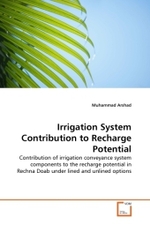- ホーム
- > 洋書
- > 英文書
- > Business / Economics
Full Description
This second edition of The Routledge Handbook of Heterodox Economics presents a comprehensive overview of the latest work on economic theory and policy from a pluralistic heterodox perspective.
The Handbook aims, firstly, to provide realistic and coherent theoretical frameworks to understand the capitalist economy. Secondly, it delineates future directions, as well as the current state, of heterodox economics, and then provides both 'heat and light' on controversial issues, drawing out the commonalities and differences among different heterodox economic approaches. The Handbook also envisions transformative economic and social policies for populations across society and explains why the discipline of economics is, and should be treated as, a social science. Contributions throughout the Handbook's two volumes explore several theoretical perspectives, including but not limited to Marxian-radical political economics; Post Keynesian-Sraffian economics; institutionalist-evolutionary economics; feminist economics; social economics; Régulation theory; the Social Structure of Accumulation approach; and ecological economics.
This Handbook will be of compelling interest to those, including students, who wish to learn about economic theories and policies that are rarely found in conventional economics textbooks or discussed in the mainstream media and critical economists and other social scientists who are concerned with analyzing pressing socio-economic issues.
Contents
Part I. Introduction 1. The state of the art and challenges for heterodox economics Tae-Hee Jo, Lynne Chester, and Carlo D'Ippoliti Part II. The dynamics of capitalism 2. Capitalism's multiple and interconnected crises: heterodox perspectives on the current polycrisis Maria Gavris 3. The accumulation of capital: an analytical and historical overview Ramaa Vasudevan 4. Heterodox theories of economic growth Özgür Orhangazi 5. Heterodox theories of the business cycle Matı́as Vernengo 6. Analyzing the organization of global production: a multidisciplinary perspective Gabriel Brondino and Víctor Ramiro Fernández 7. Labor processes and outcomes: a heterodox framework Siobhan Austen 8. Heterodox theories of inflation Oktay Özden 9. Theories of international development: the Post Keynesian and Marxist alternatives John Marangos 10. A heterodox reconstruction of trade theory Yan Liang 11. Financialization and the crises of capitalism Petra Dünhaupt 12. The new world economic order from the perspective of the Global South Monika Meireles 13. Energy, environment, and the economy Anders Ekeland and Bent Arne Sæther 14. The informal economy in theory and policy: prospects for well-being Elizabeth Hill 15. Inequality, poverty, and social exclusion Marcella Corsi, Chiara Grazini, and Giulio Guarini 16. Cryptocurrency in heterodox economic theory and institutional practice Nina Eichacker Part III. Envisioning alternatives 17. An exit strategy from capitalism's ecological crisis Lynne Chester 18. Restructuring financial systems for human advancement Wesley C. Marshall 19. Rethinking the role of the state under capitalism Anna Klimina 20. The twenty-first century capitalist revolution: how the governance of large firms shapes prosperity and inequality Jordan Brennan 21. Envisioning development from the periphery: the case of Latin America Emilia Ormaechea and Luciano Moretti 22. Achieving full employment: history, theory, and policy John Marsh, Timothy Sharpe, Juanling Huang, and Bruce Philp 23. Social welfare and social control Andrew Cumbers and Robert McMaster Part IV. The progress of heterodox economics 24. From monoculture to pluricultures: recent trends in economics education Lukas Bäuerle and Michelle Meixieira Groenewald 25. Heterodox economics as a living body of knowledge: community, (in)commensurability, critical engagement, and pluralism Jamie Morgan and John Embery Index








